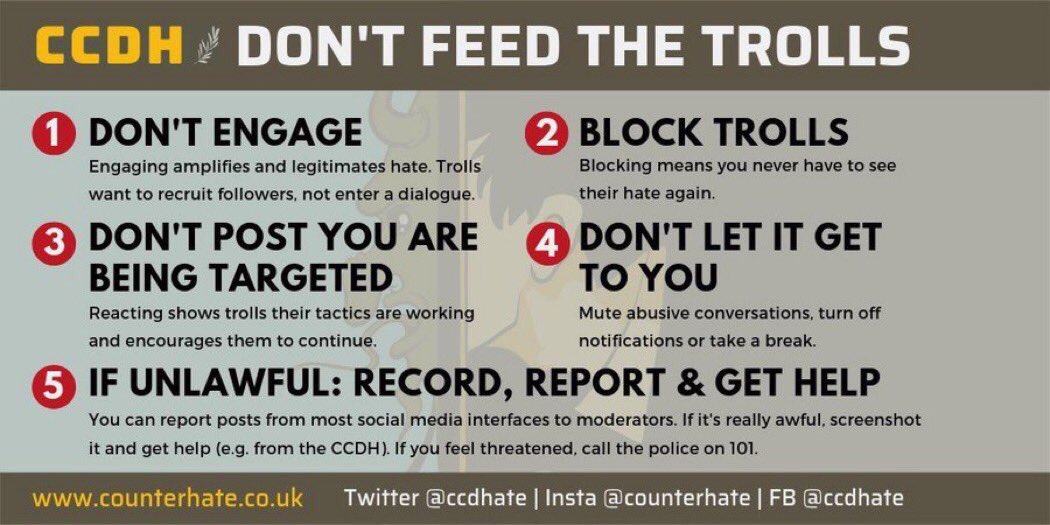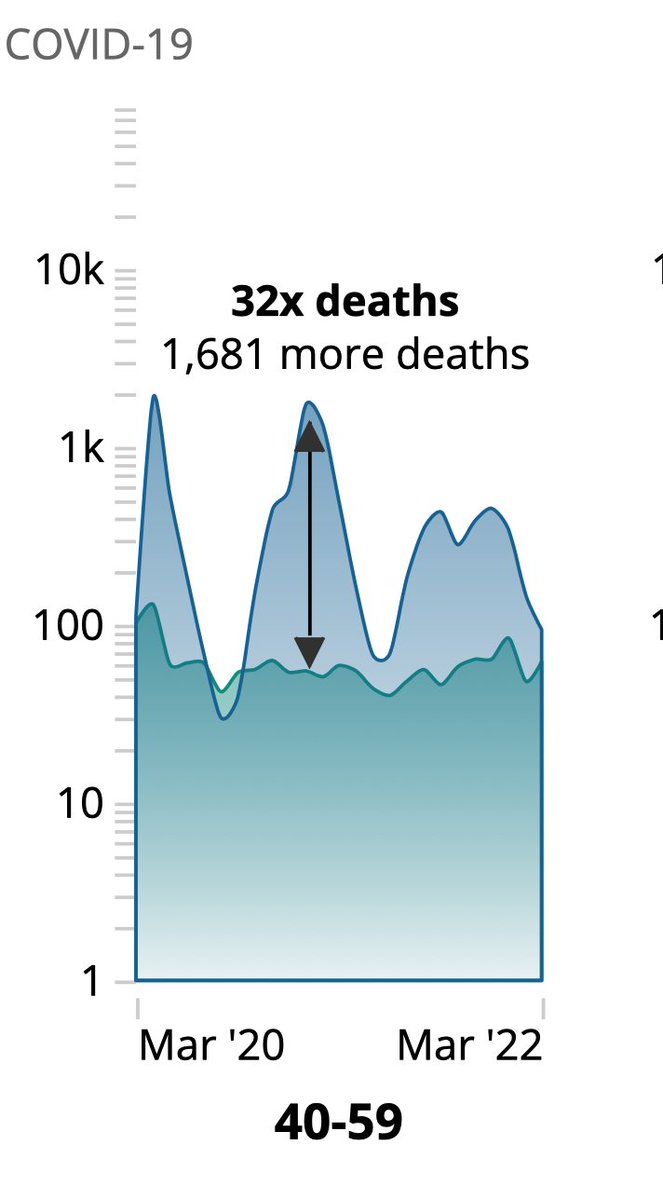
Why are there so many trolls on Social Media?
Quite simply, they are effective...!
....so long as we play along, that is.
🧵
#DontFeedTheTrolls
#disinformation
Quite simply, they are effective...!
....so long as we play along, that is.
🧵
#DontFeedTheTrolls
#disinformation

A troll is someone (or a bot) whose purpose is to derail a tweet or tweeter.
Wiki: “…a troll is a person who posts inflammatory, insincere, digressive, extraneous, or off-topic messages…”
They want to distract, usually from uncomfortable truths.
Wiki: “…a troll is a person who posts inflammatory, insincere, digressive, extraneous, or off-topic messages…”
They want to distract, usually from uncomfortable truths.
There are a number of reasons for doing so:
“This is typically for the troll's amusement, or to achieve a specific result such as disrupting a rival's online activities or manipulating a political process”
“This is typically for the troll's amusement, or to achieve a specific result such as disrupting a rival's online activities or manipulating a political process”
https://twitter.com/jessphillips/status/1530892941564190722?s=20&t=Akov7kUJzu5FeKr6_gMuJQ
Leaving aside the pathetic folk who enjoy upsetting others, we should all be concerned about the huge efforts put into trolling to “manipulate” serious public issues and invade our ‘free’ social space.
As they succeed, the space becomes more disingenuous and less reliable.
As they succeed, the space becomes more disingenuous and less reliable.
But it does tell us just how important a space Twitter is. The collective narrative on Twitter can likely heavily influence political elections or, as we have seen these last two years, can encourage or prevent people from accessing life-saving treatments.
The huge efforts put into trolling also tell us that trolling works. Trolls can affect the impact of a tweet or the reach of a particular public sentiment.
Trolling works...but only if we let it!
Trolling works...but only if we let it!

For example, we may be enraged with gun violence, but if a small minority deploy trolls to over-represent a minority's interests, then the space becomes less representative of public opinion. The deception is that there are more people who are pro-guns than there actually are.
The effects are not only a seeming overrepresentation of, for example, pro-gun supporters. It goes deeper. We end up fighting ghosts. The narrative changes from how an 18 yr old can get an automatic weapon to ‘video games’ and ‘toothaches’ - the trolls changing the narrative!
We can even end up posting new tweets arguing against the distractions put there by the trolls - the trolls are now winning!
Instead, we should be focusing on the main issues and amplifying the shared public sentiment.
Instead, we should be focusing on the main issues and amplifying the shared public sentiment.
Sadly, the effects can go even further. Harassment, slurs, defamation, threats, employer intimidation,… and this can spill over to your followers and those you follow too.
Prominent and influential people get harassed until they have to close their comments and DMs and mass block…and slowly these prominent people’s reach diminishes, until they are essentially being forced to talk in smaller and smaller circles - the trolls win again!
There are even more subtle tactics such as trolls following and setting up notifications but not engaging…to affect engagement numbers and therefore the traction of a tweet, so-called “fake followers”.
https://twitter.com/RhonddaBryant/status/1490960523739148289?s=20&t=Akov7kUJzu5FeKr6_gMuJQ
The key advice is “don’t feed the trolls”. That is, do not engage them at all.
We often do…“because they [we] misapprehend a troll’s true motives, which are usually to attract attention, exercise control, and manipulate others.”
We often do…“because they [we] misapprehend a troll’s true motives, which are usually to attract attention, exercise control, and manipulate others.”

Instead, if you detect a troll tweet you should dismiss it immediately and either block or mute. Don’t get sucked in, and by whatever means necessary do not engage. They don’t know you, their opinions do not mean anything at all…especially if you remember the likely motives.
Just as you wouldn’t allow a random person to butt into your conversations with rude comments, or allow hecklers during a presentation, nor should we permit it in our virtual social spaces.
We are in a battle against disinformation. And, I’m afraid, we are more often than not losing just now.
We need to stay on point, find trusted sources, amplify the shared sentiment, and not let the few control the space of the many.
Do. Not. Feed. The. Trolls.
We need to stay on point, find trusted sources, amplify the shared sentiment, and not let the few control the space of the many.
Do. Not. Feed. The. Trolls.

• • •
Missing some Tweet in this thread? You can try to
force a refresh





